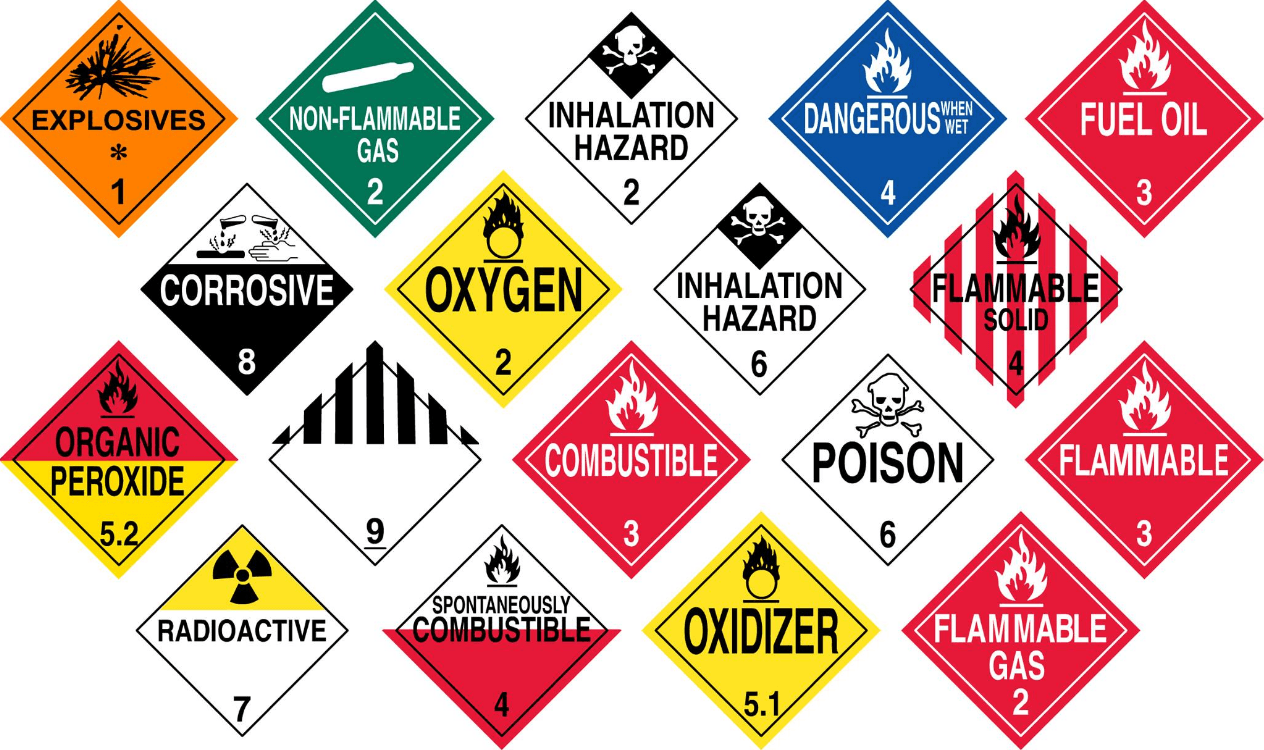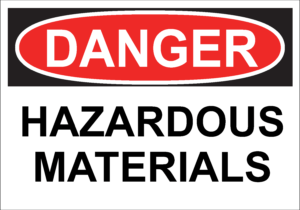Lab chemicals are an essential part of many research laboratories, and chemical transport is often a component of laboratory moving and maintenance. While many chemicals are harmless, some fall into the category of hazardous materials. Legal compliance when relocating potentially hazardous chemicals requires planning, care and expertise in U.S. Department of Transportation regulations.
Many Common Laboratory Chemicals Are Classified as Hazardous:
Any chemical with the potential to cause harm to living things, the environment, or property can be classified as hazardous. Typically, this includes any liquid, solid, or gas with properties that are flammable, combustible, toxic, pathogenic, corrosive, oxidizing, unstable, or irritating to the eyes, lungs, or skin. Federal and state laws carefully control the transport of these chemicals over public roads to reduce the risk of spills or accidents.
U.S. Government Regulates Transport of Hazardous Chemicals:
The Environmental Protection Agency (EPA) enforces the Hazardous Materials Transportation Act (HMTA) to control how potentially dangerous chemicals are moved across the United States. The HMTA includes detailed provisions for procedures, labeling, packaging requirements, employee training, and operational rules involved in chemical transport. Violations of the HTMA are federal offenses and can carry serious criminal penalties including jail time and fines up to $75,000.
It Can Be Difficult to Ship Chemicals with Standard Shipping Services:
Many researchers find that it is a hassle to ship hazardous chemicals with USPS, FedEx or UPS due to extensive paperwork and packaging specifications. The average shipping company employee may not be trained in chemical transport, so general purpose shipping companies are often subject to additional regulations when accepting hazardous materials. Utilization of a shipping service that specializes in chemical transport can save time and headaches when moving hazardous chemicals. Chemical transport professionals have the trained employees, specially designed chemical-safe vehicles, and chemical logistics experience to move hazardous materials rapidly and safely.
Hazardous Chemical Transport Requires Permits:
Enjoying our insights?
Subscribe to our newsletter to keep up with the latest industry trends and developments.
Stay InformedIn addition to federal regulations, many hazardous chemicals cannot be transported across state lines without proper documentation. Unique permits may be required for each state that a chemical shipment travels through, and some states require a permit for the transport of hazardous chemicals within the state. Companies that specialize in chemical transport can help with the extensive paperwork that is often required for chemical shipments.
Only Trained Drivers Should Transport Hazardous Chemicals:
Drivers that are transporting hazardous chemicals are typically required to have specific safety training for the chemicals in their care, for the safety of both the driver and anyone they may encounter on their route. For large or complex chemical shipments, it is often advisable to employ a professional chemical transport company with drivers that have both the training and the equipment to properly handle chemical spills in the event of an accident. Further, professional chemical transport drivers often have additional training and knowledge in planning routes for optimal safety and experience to work quickly and efficiently while observing proper safety protocols.
The transport of chemicals and hazardous materials carries many unique requirements that should not be attempted without consideration for proper safety, training and federal regulations. Planning chemical transport with a company that specializes in hazardous material transportation can save time, stress and money, and ensure the safe and prompt delivery of chemical shipments.























